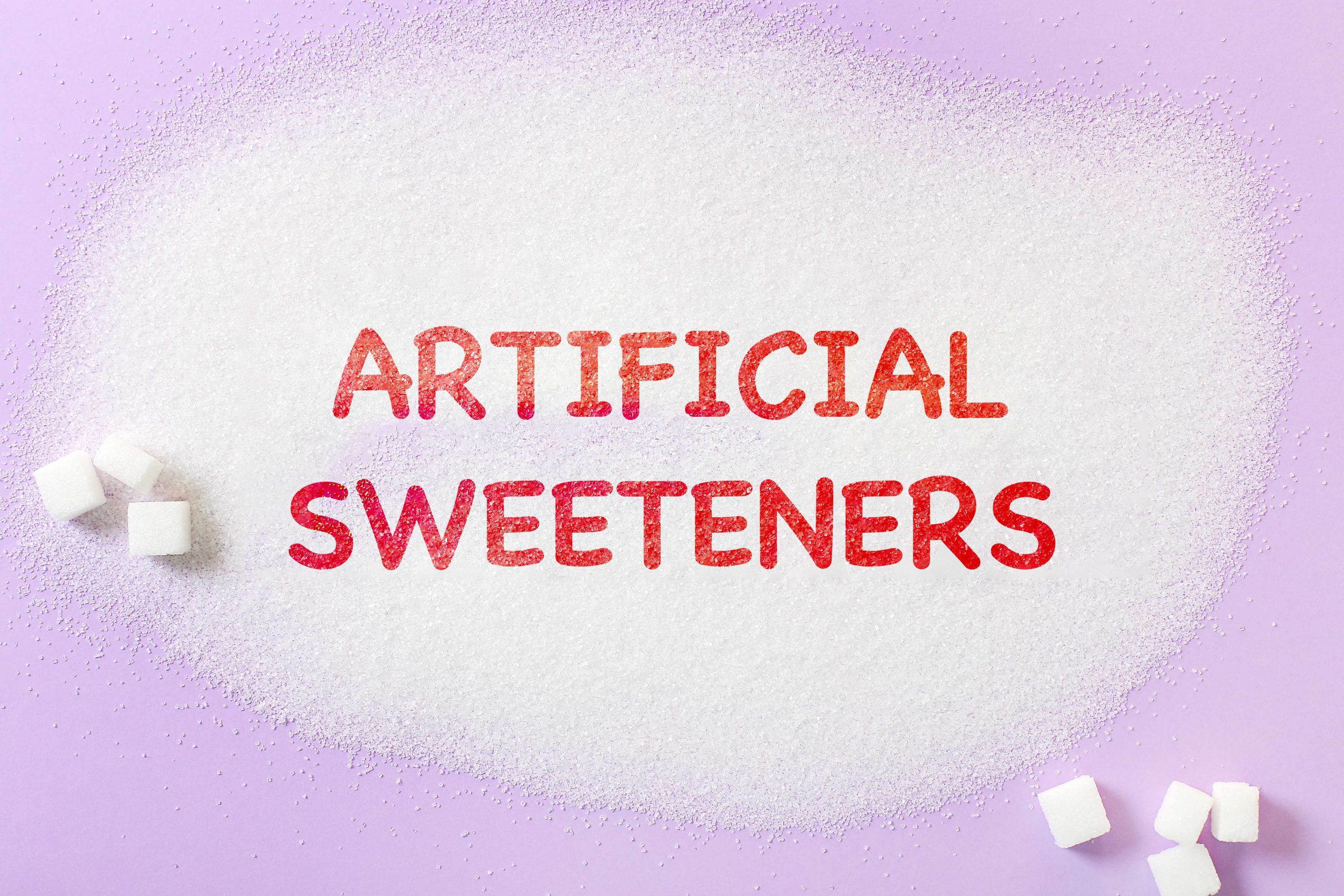Are Artificial Sweeteners Safe?

Sweetness has been one of the most desired flavours since ancient times. At the same time, the fact that excessive sugar consumption causes adverse effects is well known.
This is where artificial sweeteners come into the picture. But do you know “Which artificial sweeteners are safe?”
What are Artificial Sweeteners?
Artificial sweeteners are additives that mimic the taste of sugar. For this reason, they are also called sugar substitutes. A pressing question that most people have is, “Are artificial sweeteners safe?”
Most artificial sweeteners are low in calories but provide the sweetness of sugar. Due to this characteristic, artificial sweeteners may be used to manage obesity.
Artificial sweetening agents are also called non-nutritive sweeteners (NNS) as they do not provide any nutrients but only function to add sweetness to the food they are added to. These sweeteners are used to reduce the caloric or sugar content of foods.
Don’t struggle alone & get the expert care you deserve

Since artificial sweeteners are several times sweeter than sugar, they are used in smaller amounts. These are found in many foods and beverages like sugar-free ice creams, lassi, sugar-free Indian sweet dishes like mishti doi, barfi, halwa, and other store-stocked items like yoghurt, candies, baked products, chewing gum, breakfast cereals, frozen desserts, puddings, etc.
It is important to understand that artificial sweeteners are NOT a healthier alternative to sugar. They are just a low-calorie replacement for sugar.
What are the Types of Artificial Sweeteners?
Here are US FDA-approved six following artificial sweeteners, namely saccharine, aspartame, sucralose, stevia (purified extract), neotame and acesulfame-K, to be safe for human use and categorised under the GRAS (Generally Recognized as Safe) group. Stevia leaves do not come under the GRAS category.
These artificial sweeteners can be grouped under two main categories:
- Heat resistant: As the name goes, these are resistant to heat and can be used to make dishes like halwa, ladoo, cakes etc. They can also be used as a tabletop sweetening agent. Example: Sucralose
- Heat sensitive: These are sensitive to the heat used in cooking and can be used in tea and coffee or as a tabletop sweetener. Example: Aspartame
Depending upon the usage, one can choose the right type of artificial sweetening agent accordingly.
Indias top Diabetes nutritionists are here to help


What is the Difference between Sugar and Artificial Sweeteners
The significant difference between natural and sugar is their caloric content.
| Pros | Cons | Examples | |
| Natural Sweeteners | Can be organic | Contain calories
Minimally-processed |
Honey, jaggery, coconut sugar, maple syrup |
| Artificial Sweeteners | May have zero calories | Too much ambiguity about its safety among the general population
Can leave aftertaste |
Saccharine, aspartame, sucralose, neotame, stevia and acesulfame-K |
Are Artificial Sweeteners Safe for People with Prediabetes and Diabetes?
One of the questions that most people have regarding artificial sweeteners is, “Are they safe?”. Since the US FDA puts artificial sweeteners under the GRAS category, they are safe to consume.
However, when they are used to prepare sweets like pedas, cakes, gulab jamun, etc., a similar quantity of butter, ghee and maida (refined flour) are used as one would use in regular recipes. In this case, artificial sweetener-containing sweets contain similar calorific value as those prepared using regular sugars.
The low calorific value of artificial sweeteners may be helpful for weight management and diabetes control if you are able to minimise or restrict caloric intake from other food components.
When consumed within the acceptable daily intake limits, artificial sweeteners are safe for people with prediabetes, diabetes and weight management. When consuming artificial sweeteners, these individuals must ensure they limit their carbohydrate intake from other sources.
How We At Fitterfly Can Help You?
So, is it safe to replace sugar with artificial sweeteners? Yes and no! Artificial sweeteners increase the choice of food options available to people with prediabetes and diabetes and those who want to limit their caloric intake. There are a few studies on the side effects of artificial sweeteners, but they are currently too preliminary and inconclusive.
Diabetes doesn’t mean you need to break-up with sweets. With correct guidance and a modified diet plan, you can eat everything you love. Yes, you heard it right! Speak to our experts right now to understand how.
You can also explore Fitterfly programs specially created for people with diabetes or prediabetes Fitterfly Diabetes Care Program. And not just that you can also check out our much loved and effective Fitterfly Weight Loss Program.
Let these health conditions not stop you from living life the way you want. We are here to help you do just that. 🙂
This blog provides general information for educational and informational purposes only and shouldn't be seen as professional advice.
India's top Diabetes nutritionists are here to help





















